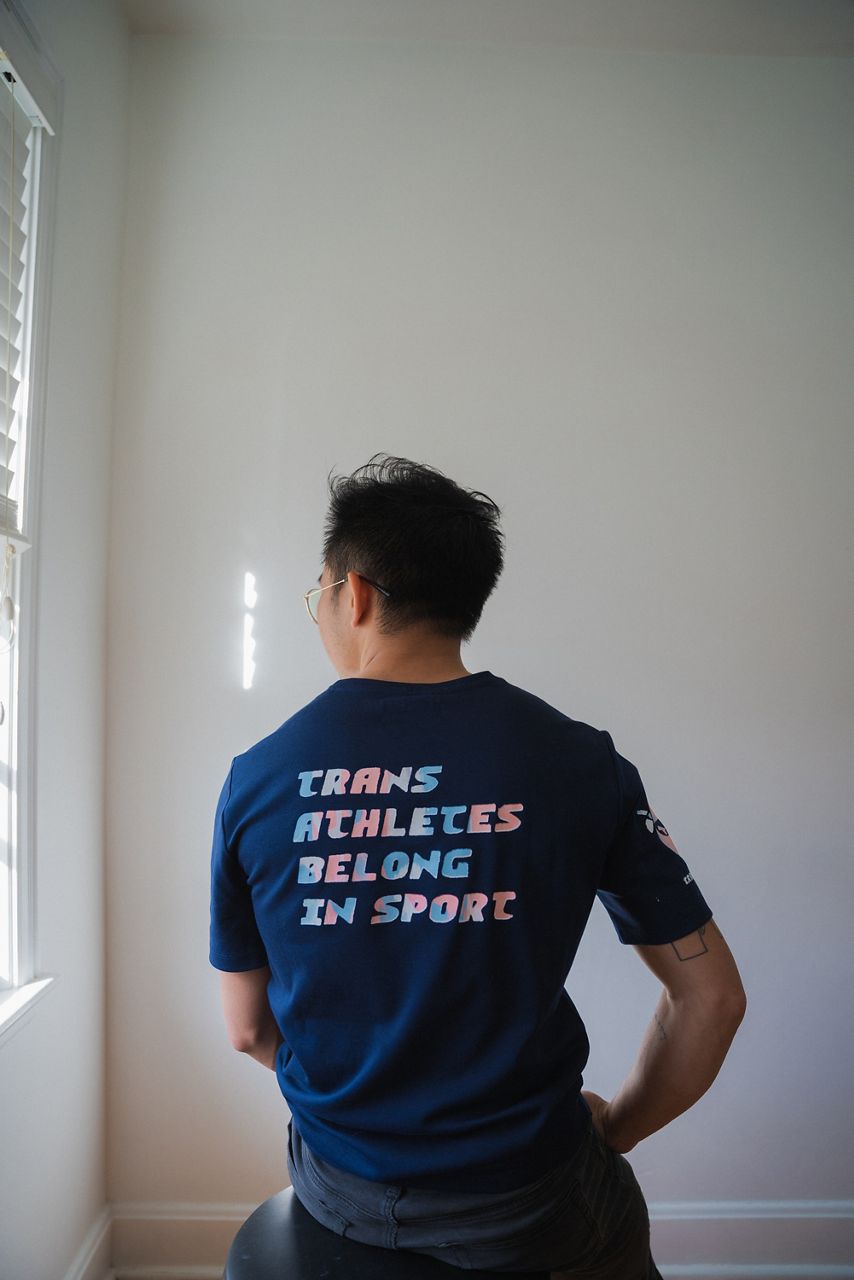LOUISVILLE, Ky. — When Cat Runner wins a rock climbing competition, he knows it's the result of intense focus and countless hours in the gym. But as a transgender man, he also knows others might not see it that way.
“It’s scary and kind of upsetting that people might think I’m the athlete I am only because of my transness — that the only reason I win is that I inject testosterone,” the 23-year-old told Spectrum News 1. “This is something I work really hard for.”
For the past several years in Kentucky, lawmakers have introduced legislation that would limit the ability of athletes, like Runner, to participate in school sports. The latest version, pre-filled this month by Winchester Republican Rep. Ryan Dotson, focuses only on transgender girls and women and attempts to bar them from playing high school and college sports on teams matching their gender identity.
In a news release this month, Dotson said the bill aims to “protect the integrity of women's sports.” Transgender women, he said, have an “unfair advantage” when competing alongside cisgender women.

But Runner said Dotson’s bill and the dozens like it across the nation imply that all trans athletes are "cheaters." He attributes their spread to transphobia and the "transphobic belief that trans women are actually men pretending to be women.”
When trans athletes win, he said, their gender identity is scapegoated. “Being trans is the one definitive thing that separates them, so it has to be the reason why they're winning,” he said. “But trans athletes can be superb athletes on their own.”
Runner’s days as an athlete go back to elementary school, when he fell in love with basketball after watching "High School Musical." By middle school, at a time when he still presented as a girl, he was playing both basketball and field hockey on the girl's teams. But in high school, he fell away from sports as he started discovering something about himself.
“I had a friend who was trans and I looked up what it meant and fell into the black hole on YouTube,” he said. “I found myself within stories of trans people and it went from not fitting in because of my masculinity to having a word for it.”
After transferring half way through high school and beginning to transition genders, Runner considered returning to the basketball court. The process took a lot more than tryouts.
“I had to have my head of school, head of campus, my counselor, my AD, my mom, all in my corner fighting for me,” he said. “But I also fit this bill, where I was on testosterone and had top surgery and all my documents had been changed.”

The Kentucky High School Athletic Association (KHSAA) currently allows transgender students to play on the team matching their gender identity, but only if they have undergone gender reassignment surgery. but only if they’ve undergone gender reassignment surgery. Students who have undergone surgery after puberty must also have taken hormone therapy “for a sufficient length of time to minimize gender-related advantages in sports competition,” the KHSAA policy says. Runner called the policy discriminatory because it leaves no space for athletes who don't meet its narrow definition of transgender.
Runner said policies that make it harder for trans athletes to play sports can damage even those who meet the requirements and make it on the field. "It’s making being trans synonymous with being a cheater,” he said. And, he said, it makes athletes wonder, “How much of my best can I be before people start to question who I am?”
Despite eventually receiving permission to play on the boys basketball team, Runner’s senior year schedule didn’t allow for it. Now, he prefers individual sports. Along with rock climbing, Runner competes in obstacle course races.
He does these sports as “an out and proud trans person,” and makes a point of talking about his transgender identity.
“I want other trans people to see that you can thrive as a trans person,” he said. “It’s not a tragedy. It’s not something that ruins your life or makes you a terrible person. People like you can exist in this space and enjoy these things.”
